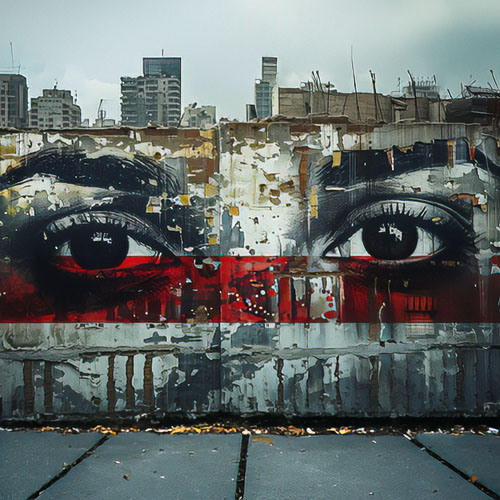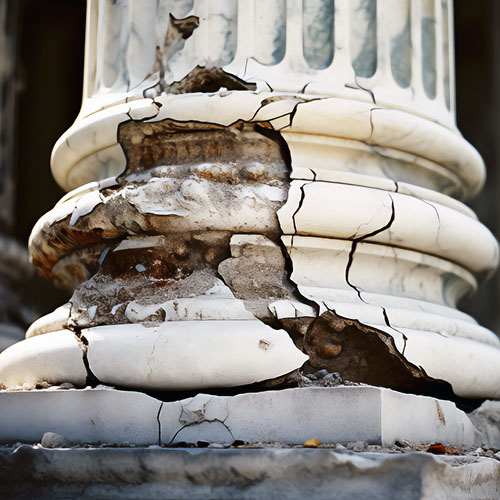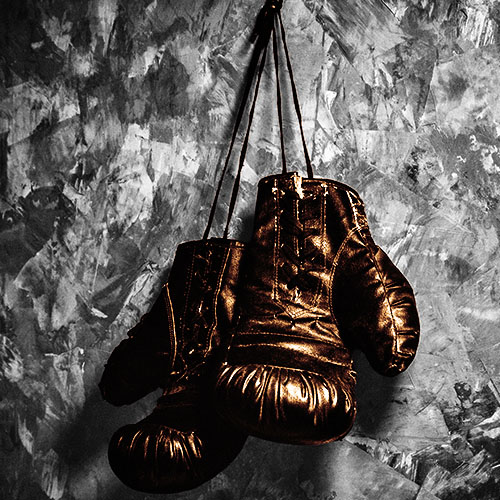The author was executive director of Episcopal Mission Society in the diocese of New York from 1973-1988.
Incarceration: How Prisons Cause Crime
Last year the Supreme Court finally ruled that human beings confined in prisons in the United States are not totally outside the purview of the Constitution. The Eighth Amendment forbids cruel and unusual punishment, but in the past, those who had been sentenced by a court to prison were not fully protected by this right. Federal and state prison guards and “correction” officials were allowed broad license in “punishing” offenders locked under their authority. Previously, a federal appeals court had ruled that the use of force against a prison inmate did not violate the Eighth Amendment unless that force caused significant injury. Thus, Americans had been allowing open season for prison guards to beat up on prisoners at their own caprice.
The 1992 Supreme Court decision was the result of a complaint of an inmate, Keith Hudson, who had been confined to the state penitentiary in Angola, Louisiana. He had been beaten, punched in the mouth, eyes, and chest, and had his partial dental plate broken as he was being led by guards to the prison administrative office. The prisoner had offered no resistance. A supervising guard, looking on, merely commented, “Don’t have too much fun!” This type of incident has been all too common in American prisons. The Supreme Court’s action is a long overdue step toward civilizing our barbaric justice system.
As the United States continues to forge ahead as the world’s leader in locking up its citizens, it becomes clear that this decision is not enough. It is high time for citizens of goodwill to demand that alternatives be found to our present slaphappy overuse of incarceration. Not only is the system brutal, it simply doesn’t work.
Crime has become the most important issue confronting American cities and those who must live or work within them. Yet most of our efforts to combat crime are futile and irrelevant at best, and at worst actually have the opposite effect of contributing to its increase.
One thing is certain: America cannot be considered soft on crime. As we entered the 1990s, the U.S. rate of imprisoning its citizens grew to 455 per 100,000 people, whereas the next most incarcerating nation, South Africa, has only 311 per 100,000 of its citizens behind bars. (These figures were assembled by Marc Mauer, assistant director of the Sentencing Project, a nonprofit organization that promotes sentencing reform.) The report substantiates the long-known fact that increased rates of incarceration do not reduce crime but, in fact, raise crime rates proportionally.
For some inexplicable reason, many Americans still do not consider it cruel and unusual punishment to deprive a human being of all social relationships, palatable food, normal sexual relations, the use of goods, and the right to move around. International crime experts are shocked at what they see when visiting American prisons.
For example, most people are unaware that the state of New York keeps convicts who are deemed dangerous in six- by eight-foot cells in the prison at Southport, New York. The men are kept locked in this tiny space for 23 hours a day, with only one hour to exercise in a small wire cage extending the width of eight cells (about 48 feet). It is no exaggeration to say that the animals at the Bronx Zoo are treated more humanely.
Other states, such as Florida, in a desperate effort to build more prison space at the lowest cost, keep inmates locked in small huts surrounded by razor-sharp barbed wire. Eighty men are locked in together with only inches between beds in what Florida dares to call “camps.” Even paraplegic and blind prisoners are so confined, and suffer along with the others. Long mandatory sentences must often be served in these subhuman conditions.
The worst aspects of living in the urban slums are duplicated in a malevolent way inside our prisons. As in the slum ghetto, the usual symbols of status, money, possessions, jobs, and titles are absent.
Status is in such short supply in prison that it can be gained only at the expense of someone else — by putting him down verbally, physically, or sexually. Since manhood cannot be proven by heterosexual prowess, it must be demonstrated by exaggerated toughness. The tough guy has to victimize others, or be able to withstand victimization by those who may be bigger or stronger. Our prisons teach the law of the jungle.
The layers of the inmate’s skin are systematically peeled away, leaving him totally vulnerable. Each new day, week, and month behind the fences stirs up new rage and bitterness within the hearts and minds of our prison inmates. This rage will burst forth someday and be vented violently and outrageously on some innocent citizen. The millions of men graduating from our prisons are bound to ensure that America remains locked in the grip of violent crime.
No reasonable person would question the right of the state to protect its citizens. It certainly has the right to restrain human beings who are incapable of controlling their impulses. Jails are necessary to protect innocent members of society from wanton and destructive acts perpetrated by those few individuals who are dangerous and prone to inflict pain upon others. The state does not, however, have the right to practice vengeance.
A person convicted of a crime should have penalties imposed upon him by the state, like fines and loss of privileges. Restitution, wherever possible, should be vigorously demanded. In Holland and France (to name just two of the more enlightened countries), far fewer citizens are confined in prisons, and those who are have shorter sentences and far better living conditions. Those countries make better and more extensive use of penalties in curbing crime. They are also more rigorous in seeing that those convicted of a crime make restitution to their victims after the fact.
In America we pay very little attention to the needs of victims. Our concerns seem to be centered on wreaking vengeance on whomever we can brand with the name criminal. Is it not time to expand the historic prohibition against cruel and unusual punishment meted out by the state to include all incarceration not necessary for the protection of society and the preservation of the peace? How ironic it is to read that U.S. diplomats censure Israel for deporting those who have thrown firebombs in the streets and injured innocent people. Deportation is far less harsh than the American practice of putting such lawbreakers in cages.
Sixty percent of our prison inmates are locked up because of a crime committed under the influence of alcohol or drugs. Wouldn’t it make more sense to provide treatment centers to cure alcohol-and drug-abusers than to lock them away with no treatment, only to have them released to commit more heinous crimes to feed their addictions? It is becoming painfully obvious that our correctional institutions aren’t correcting anyone. If, on the contrary, we set out to devise a setting that would systematically create maladjusted human beings, we could never surpass the damaging effects of our modern prisons.
Other countries find alternatives to incarceration, and so should we. Our jails are not filled by the real criminals anyway. They are filled by the poor, by members of minority groups, and by the powerless. It has been said that “laws are like cobwebs, where the small flies are caught, and the great break through.” Incarceration is cruel and unusual punishment, and should be recognized as such by our courts and allowed only under circumstances when no other remedy can be found.
Prisons as we know them in America should be abolished once and for all. Only those individuals who are unable to control their impulses and who are consequently a danger to themselves and others should be incarcerated. Fines and other penalties should be imposed by courts to move offenders to acceptable behavior. Then our jails can be small, and proper services can be provided to give lawbreakers an opportunity to change their lives and become decent citizens.
The present system of prisons for the mass incarceration of lawbreakers in the United States is as intolerable as the institution of slavery, and equally brutalizing to all involved — the keepers and the kept. It is also equally toxic to our social system and destructive to the brotherhood of human beings. America can do better!
Expanding the Eighth Amendment of our Constitution to cover all men and women in prisons is a step toward civilizing our justice system. But it is still only a small step. America must also free itself of the onus of being known as “the lockup capital of the civilized world.”
It may or may not interest you to know that the incarceration rate in the United States ranks among the very highest in the world. After all, it will always be easier to simply hide the problem away than try to deal with any underlying causes. If you can’t see it, you do not have to admit its reality. We could of course delve into the psychology behind the commission of crimes, the economic realities that pressure that psychology, or even the political morass that makes any attempt to even address some issues range from naive to impossible. Instead, we will ask only that you maybe take a minute to really think about what people are telling you on the news or in your favorite social media feed. Everybody has an agenda. It behooves us all to look for one in our education.
Also — and in a spectacularly and totally unrelated manner — we decided to help people out with a few images from Penthouse Vault that might help folks hang in there as this suddenly wet and snowy winter winds down. We thank Joanne Guest and Lena Johansson for their contributions to our increased sense of well-being, while we quietly suggest PenthouseGold for a more “complete” view of this interaction — and our actual sense of well-being.
Hey, we have always claimed to be fun. We never said anything about logical.



























